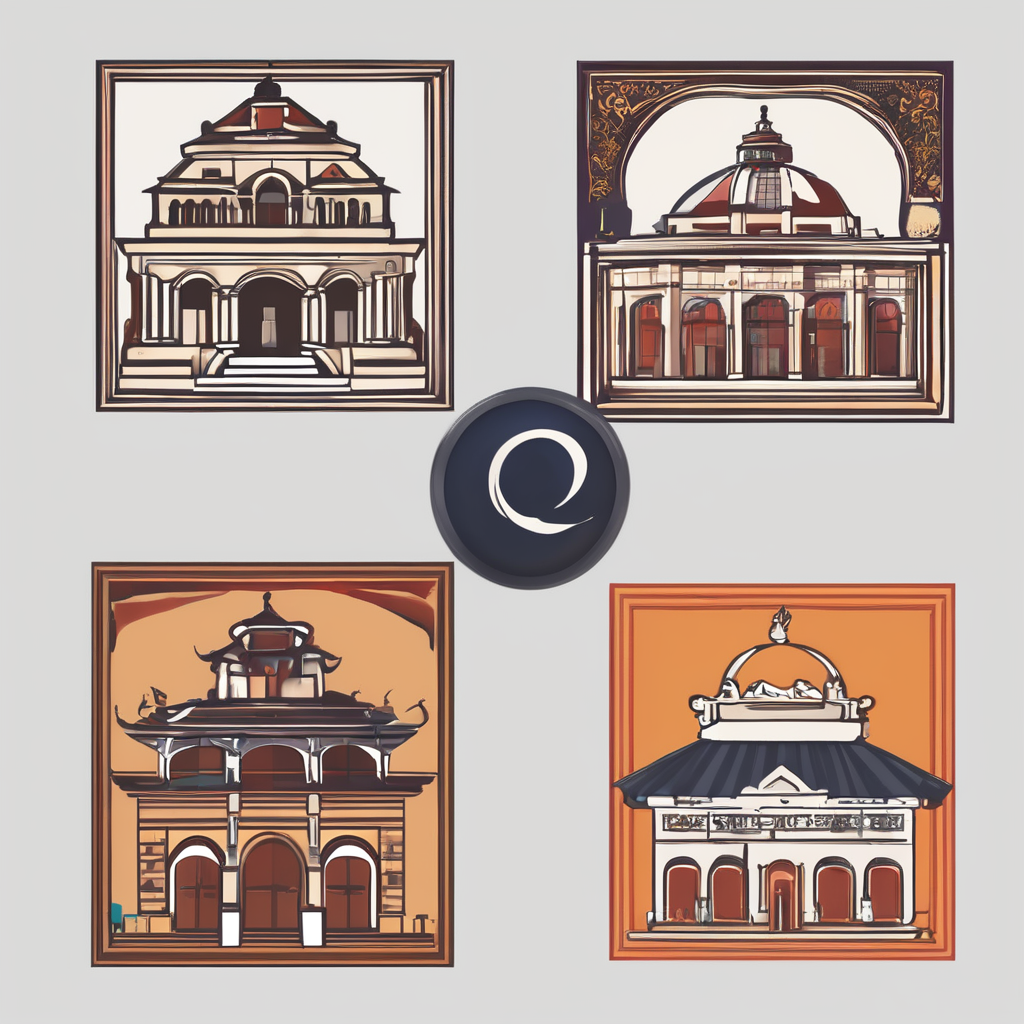Overview of Traditional British Lock Making Workshops
Traditional British Lock Making carries a rich history, reflecting the ingenious craftsmanship and innovation of past eras. These locks, with their unique designs and intricate mechanisms, have been staples of British engineering since the industrial revolution. The tradition continues today through workshops for tourists, offering an engaging window into the heritage of lock making.
These workshops provide various hands-on experiences, allowing participants to engage directly with tools and materials. Typically, they include learning to construct simple locks from scratch, understanding the fundamental mechanics, and gaining insights into the evolution of lock design. Tourists can choose from brief introductory sessions to more in-depth courses, ensuring there’s something for everyone, whether a casual enthusiast or a budding locksmith.
Also read : Uncovering London”s Best Tours: Dive into the Rich History of British Parliamentary Debates
Participating in such workshops comes with myriad benefits. For starters, they offer an immersive educational experience, imparting knowledge of ancient artifacts and their relevance today. Additionally, these activities foster a sense of creativity and problem-solving as you work through challenges inherent in lock making. Lastly, the satisfaction of designing and building your own lock serves as a tangible reminder of the unique skills acquired. Embrace the journey into traditional craftsmanship and explore the cultural significance embedded in these workshops.
Recommended Workshops for Tourists
Unlock the world of creativity with these top-rated experiences that consistently receive glowing tourist recommendations. Discover the best lock making workshops offering an immersive dive into the art of crafting.
This might interest you : Discover the Top Tours Exploring the Rich History of British Lighthouse Engineering Throughout the UK
Workshop 1: Lock & Key Studio – Edinburgh
Nestled in the historic charm of Edinburgh, Lock & Key Studio offers a hands-on experience in traditional locksmithing techniques. Participants learn how to create bespoke locks and keys under the guidance of expert artisans. Unique features of this workshop include the chance to see Victorian-era lock mechanisms and try your hand at antique tools. Priced at £75 per person, the workshop operates every weekend, ensuring tourists can easily fit this into their busy schedules.
Workshop 2: The Craftsman’s Touch – Prague
Situated in Prague’s scenic old town, The Craftsman’s Touch is renowned for its dedication to fine detail in lock making. This workshop focuses on Bohemian-style design, allowing attendees to craft intricate lock patterns. Noteworthy is the opportunity to collaborate on a group project, creating a large-scale piece. Sessions are priced at €80 and run twice a week.
Workshop 3: Keymakers Grove – Amsterdam
In Amsterdam, Keymakers Grove presents a fusion of traditional and modern techniques in lock design. This workshop is uniquely interactive, incorporating elements of technology with traditional craftsmanship. Visitors love the eco-friendly practices here, reusing metals for lock production. Priced competitively at €65, it offers sessions daily with prior booking.
Historical Context of British Lock Making
The history of lock making in Britain is rich and fascinating, dating back to the medieval period. Initially, locks were rudimentary yet effective, with their roots tracing to ancient mechanisms discovered in Egyptian tombs, evolving significantly over centuries. British heritage is deeply intertwined with this craft, as local smiths transformed simple wooden devices into robust, metal constructions during the Industrial Revolution.
Lock makers played a significant role within various historical contexts, contributing to both security and social advancements. Their innovations were driven by the need to protect valuables as well as uphold privacy, reflecting broader societal changes. From securing castles during the Norman Conquest to safeguarding emerging urban households in the Victorian era, locks were pivotal.
Traditional crafts and the skills required in lock-making grew increasingly specialised, showcasing both artistic and technical prowess. Early British lock makers such as the Bramah and Chubb families became household names, renowned for their ingenuity and influence. These craftsmen set standards still revered today, highlighting the importance of meticulous craftsmanship in this ever-evolving field. Their legacy underscores the continued relevance of this tradition within British culture, marrying historical depth with modern innovation.
Participant Testimonials and Experiences
Participants of our workshops have shared enthusiastic reviews, demonstrating the positive impact these sessions have had. The activities are carefully curated, ensuring that attendees leave with valuable skills while also having great fun. For example, a recent workshop on lock making received extensive praise for its engaging format. Participants mentioned that it allowed them to discover a passion they never realised they had.
The customer experiences provided highlight not only the technical skills acquired, such as fine-tuning precision and creativity, but also the joy and camaraderie established during the workshop. People found learning together enhanced their overall enjoyment, often forming lasting friendships with fellow attendees.
Feedback frequently reflects on the memorable experiences individuals enjoyed in these workshops. Whether delving into the art of crafting intricate locks or dissecting complex mechanisms, each session promises a nuanced understanding of the subject matter. Testimonials indicate that the workshops were not just educational but also a source of personal growth, boosting confidence in new skills.
The workshop reviews consistently underscore an appreciation for the supportive and dynamic environment, making learning intricate topics both accessible and rewarding. This ensures that both first-time participants and returning attendees feel equally engaged and inspired.
Practical Details for Tourists
Embarking on a lock-making adventure requires some foresight. Booking Information is crucial; it’s recommended to secure your spot as workshops often fill up quickly. Check if online reservations are available, or if contacting directly via phone or email is advisable.
Once you’ve secured a spot, consider workshop necessities such as protective gear or material costs. Workshop Duration typically varies, with most sessions averaging between 2 to 4 hours. During this time, expect hands-on guidance from skilled artisans, offering profound insights into traditional methods. Tourist Tips for maximizing this experience include arriving early to familiarize yourself with the venue and bringing an open mindset to absorb the intricate techniques shared. Some workshops provide tools and materials, but confirming this beforehand can prevent any last-minute surprises.
To ensure an enjoyable session, wear comfortable clothing and be prepared to engage actively in the learning process. It’s beneficial to enquire about language preferences too, ensuring smooth communication and comprehension throughout the class. Taking these factors into account will enrich your creative journey, transforming an ordinary day into a memorable cultural immersion.
Visual Showcase of Lock Making Activities
Engaging visuals can significantly enhance one’s understanding of the intricate craft of lock making. Whether you’re a student of the trade or simply intrigued by the art, images and videos provide unmatched insight into each step of the process. Lock Making Gallery visuals capture the essence of this ancient craft, showcasing tools, techniques, and masterful craftsmanship.
Suggested Photo Opportunities
During workshops, seize the chance to photograph the crafting process. Focus on capturing:
- Detailed shots of tools and materials.
- Step-by-step creation stages.
- Final finished locks displayed alongside their components.
These images not only document the artistry involved but also provide educational value for those wishing to learn more.
Recommended Video Content
Videos can elevate the lock making experience further. Consider exploring content from established creators who specialise in lock making. Channels often provide tutorials, insights, and firsthand experiences from skilled artisans.
- Seek out videos that focus on both traditional and modern techniques.
- Explore channels that offer time-lapses, giving a comprehensive view of the entire process.
In essence, a Lock Making Gallery paired with Workshop Photos and engaging Video Content can provide a thorough and captivating look into the nuanced world of lock making.







